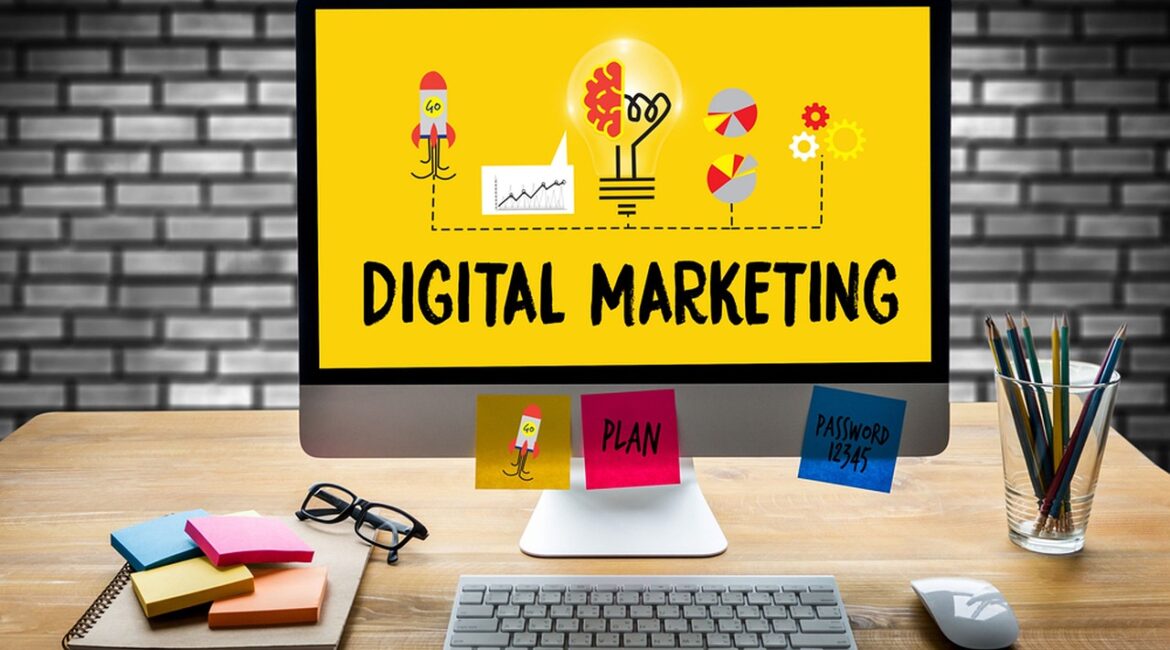
How to Increase Hotel Bookings Through Effective Digital Marketing
Introduction
The hospitality industry has become increasingly competitive, with travelers having access to a wide range of accommodation options. In this digital age, having a strong online presence is crucial for hotels to attract guests and increase bookings. Digital marketing plays a vital role in ensuring that your hotel reaches potential guests at the right time with the right message. Whether you run a boutique hotel or a large chain, understanding and implementing effective digital marketing strategies can significantly boost your occupancy rates and revenue. This guide explores the best practices to enhance your hotel’s digital presence and drive more direct bookings.
The Importance of Digital Marketing for Hotels
Digital marketing is essential for hotels as it provides a platform to connect with potential guests, showcase the property’s unique features, and influence booking decisions. Unlike traditional marketing methods, digital marketing offers targeted and measurable strategies that help hotels engage with their ideal audience. With millions of travelers searching for accommodations online, a well-executed digital marketing plan ensures that your hotel stands out in search results, on social media platforms, and across various online booking channels.
Effective digital marketing not only increases bookings but also helps in building brand loyalty, enhancing guest experiences, and generating positive reviews. Hotels that invest in digital strategies gain a competitive advantage by reaching travelers before they make their booking decisions.
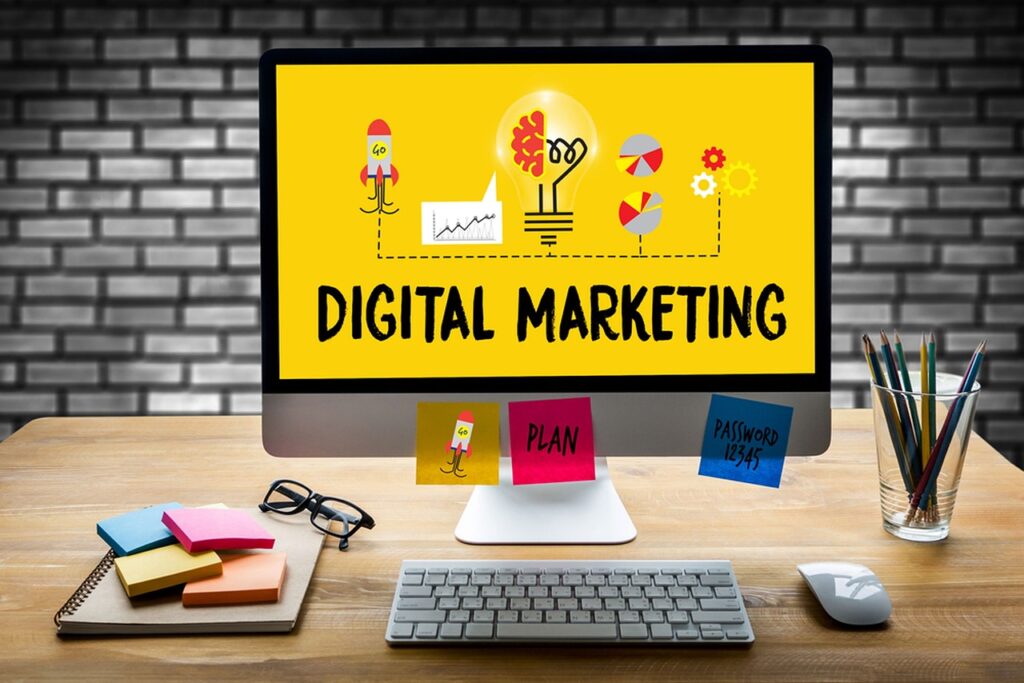
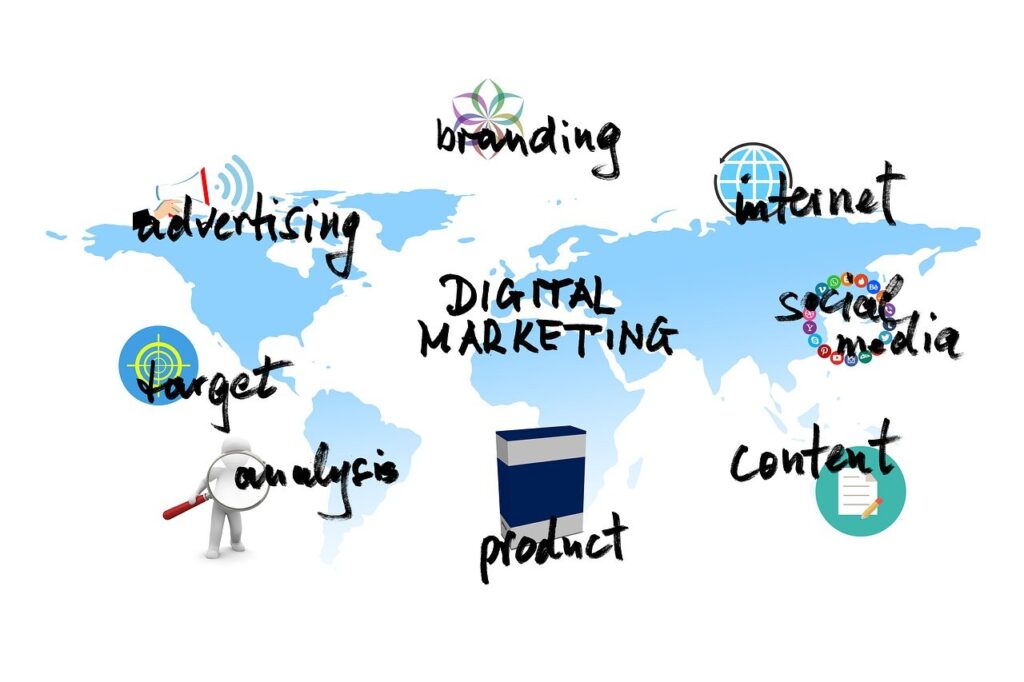
Optimizing Your Hotel Website for Higher Conversions
Your hotel’s website is the foundation of your digital marketing strategy. It serves as the first point of interaction for potential guests and should be designed to convert visitors into bookings. A well-optimized website must be fast-loading, mobile-friendly, and visually appealing with high-quality images and detailed descriptions of rooms and amenities. Additionally, having a seamless booking engine integrated into your site ensures a smooth reservation process.
Search Engine Optimization (SEO) is crucial for making your hotel website more discoverable. By optimizing your website for relevant keywords such as “best hotels in [your location]” or “luxury hotels near me,” you can attract more organic traffic. High-quality content, blog posts, and location-based information further improve your search rankings. Furthermore, adding trust signals like guest testimonials, certifications, and awards can instill confidence in potential guests and encourage them to book directly through your website.
Leveraging Social Media Marketing to Engage Travelers
Social media platforms such as Instagram, Facebook, Twitter, and LinkedIn offer hotels an excellent opportunity to connect with potential guests and showcase their brand personality. With visually driven platforms like Instagram and Pinterest, hotels can post high-quality images and videos of their property, amenities, and guest experiences. Behind-the-scenes content, special promotions, and interactive posts like polls and Q&A sessions can also help increase engagement.
Paid social media advertising is another powerful tool that hotels can leverage. By using targeted ads on Facebook and Instagram, hotels can reach specific demographics, including travelers based on location, interests, and behavior. Retargeting ads are especially effective in reminding users who have visited your website but haven’t completed their booking. Engaging with guests through comments, direct messages, and user-generated content creates a sense of community and builds trust with potential customers.
Maximizing Bookings with Google Hotel Ads and PPC Campaigns
Google Hotel Ads and Pay-Per-Click (PPC) advertising are essential components of a successful hotel digital marketing strategy. Google Hotel Ads allow hotels to showcase their rates alongside OTAs in search results, increasing the chances of direct bookings. Since many travelers begin their booking journey with a Google search, appearing at the top of search results increases visibility and credibility.
PPC campaigns through Google Ads and Bing Ads help hotels drive targeted traffic to their website. Bidding on keywords such as “best hotels in [city],” “affordable luxury stays,” or “business hotels near [landmark]” ensures that your property appears in front of potential guests actively searching for accommodations. A well-optimized PPC campaign includes compelling ad copy, relevant landing pages, and strategic bidding to maximize return on investment (ROI).
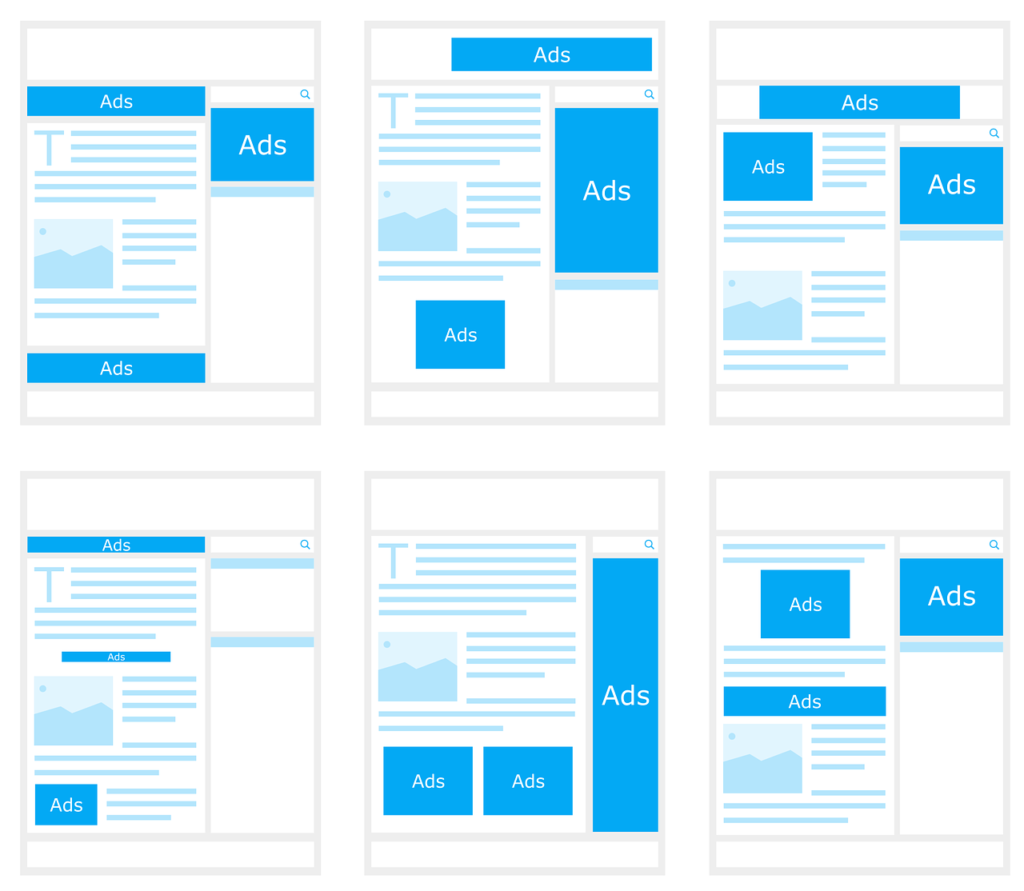
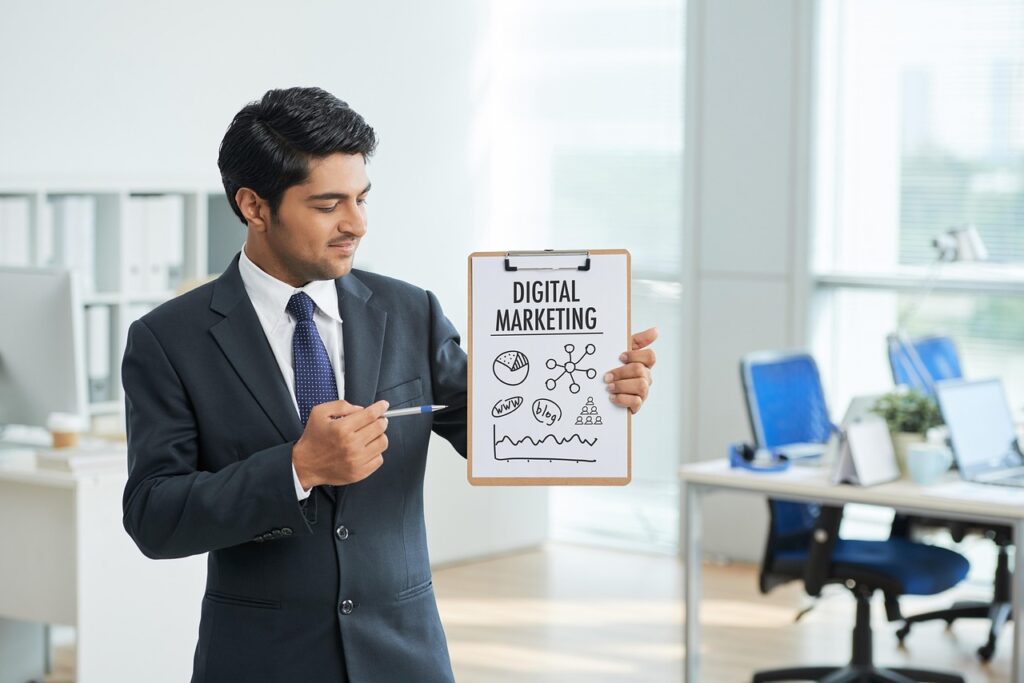
Enhancing Guest Engagement Through Email Marketing
Email marketing remains one of the most effective ways to nurture relationships with past and potential guests. Personalized email campaigns help hotels stay connected with their audience by providing special offers, loyalty rewards, and exclusive discounts. Automated email sequences, such as pre-arrival welcome emails, post-stay thank-you emails, and review request emails, enhance the guest experience and encourage repeat bookings.
Segmentation plays a crucial role in email marketing success. Hotels can categorize their email lists based on past bookings, travel preferences, and guest demographics to send tailored messages. For example, offering discounts to previous business travelers for their next corporate stay or promoting honeymoon packages to couples who have booked romantic getaways can increase conversions. Consistently providing value through newsletters, travel tips, and local event updates keeps your hotel top-of-mind among potential guests.
Encouraging Online Reviews and Reputation Management
Online reviews play a significant role in influencing travelers’ booking decisions. Potential guests often read reviews on platforms like TripAdvisor, Google, and Booking.com before making a reservation. Encouraging satisfied guests to leave positive reviews enhances your hotel’s reputation and attracts more bookings.
Reputation management is crucial for maintaining a strong online presence. Hotels should actively respond to reviews—both positive and negative—to show that they value guest feedback. Addressing negative reviews professionally and offering solutions demonstrates commitment to guest satisfaction. Hotels can also showcase positive reviews on their website and social media pages to build credibility and encourage trust among potential guests.
Using Influencer Marketing and Partnerships to Expand Reach
Influencer marketing has gained popularity in the hospitality industry, with travel influencers playing a key role in promoting hotels to their followers. Partnering with influencers who align with your brand can boost awareness and credibility. Hotels can offer complimentary stays to influencers in exchange for social media posts, blog features, and video reviews.
Collaborating with local businesses, travel agencies, and tourism boards can also help hotels expand their reach. Cross-promotions, joint marketing campaigns, and referral partnerships create additional opportunities for attracting guests. By forming strategic alliances, hotels can tap into new audiences and enhance their marketing efforts.
Conclusion: The Future of Hotel Digital Marketing
As the hospitality industry continues to evolve, hotels must embrace digital marketing to remain competitive and increase bookings. From optimizing websites and leveraging social media to running PPC campaigns and engaging in email marketing, a comprehensive digital strategy ensures maximum visibility and revenue growth.
Investing in digital marketing not only attracts new guests but also strengthens relationships with existing customers, leading to higher retention rates and brand loyalty. By staying ahead of trends and continuously refining marketing efforts, hotels can successfully navigate the digital landscape and achieve long-term success.
0 Comments